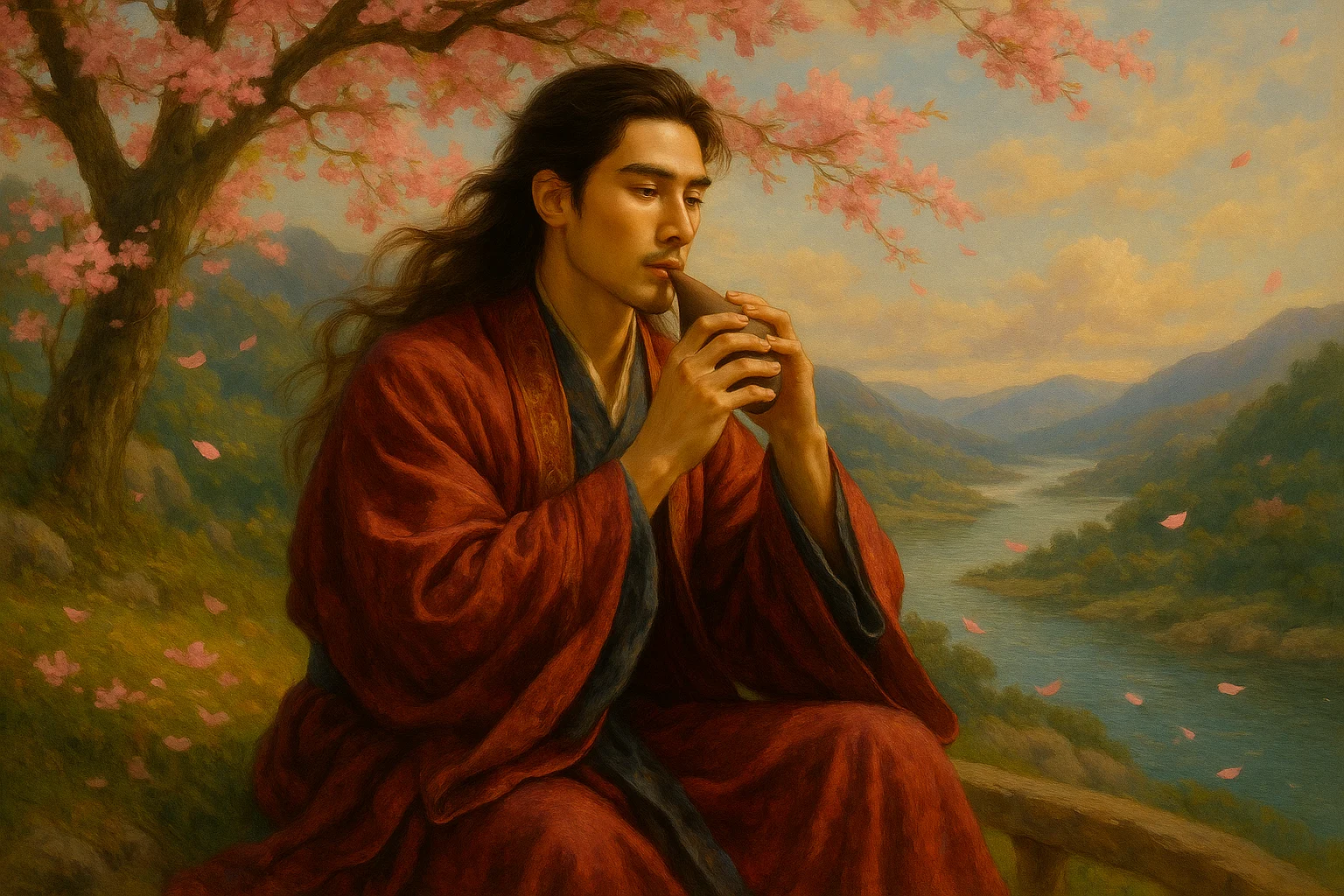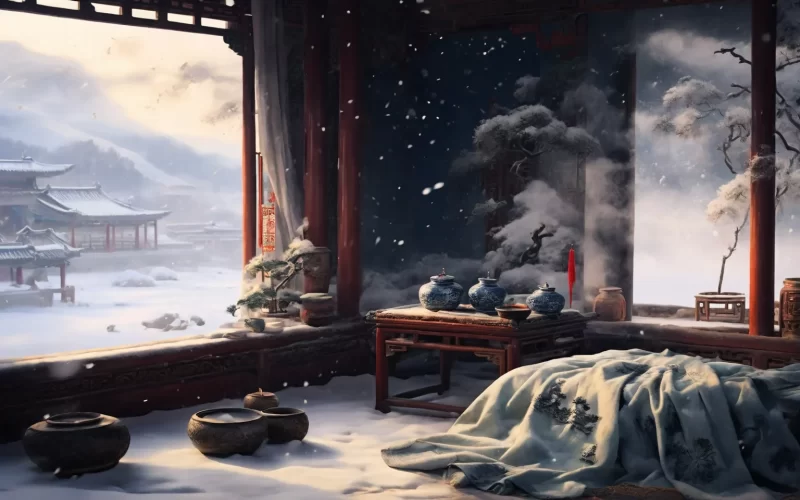I sit here alone, mourning for us both.
How many years do I lack now of my threescore and ten?
There have been better men than I to whom heaven denied a son,
There was a poet better than I whose dead wife could not hear him.
What have I to hope for in the darkness of our tomb?
You and I had little faith in a meeting after death-
Yet my open eyes can see all night
That lifelong trouble of your brow.
Original Poem
「遣悲怀 · 其三」
元稹
闲坐悲君亦自悲,百年都是几多时?
邓攸无子寻知命,潘岳悼亡犹费词。
同穴窅冥何所望?他生缘会更难期。
惟将终夜长开眼,报答平生未展眉。
Interpretation
"An Elegy III" was composed by Yuan Zhen about a year after his wife Wei Cong's passing while serving as Imperial Censor. Continuing the elegiac tone of its predecessors, this poem expresses the poet's profound sorrow and sense of loss. Through meditations on life's brevity, remembrance of the departed, and futile fantasies of posthumous reunion, it reveals Yuan Zhen's deep affection and despair. More poignant than the previous two poems, it brims with helplessness and inconsolable grief.
First Couplet: « 闲坐悲君亦自悲,百年都是几多时? »
Xián zuò bēi jūn yì zì bēi, bǎi nián dōu shì jǐ duō shí?
At leisure I mourn you and myself - How fleeting are even a hundred years?
These lines convey the poet's profound grief for his wife while reflecting on life's transience. Though sitting idly, he cannot escape thoughts of his departed wife, feeling both their lives were tragically brief - even a century seems too short.
Second Couplet: « 邓攸无子寻知命,潘岳悼亡犹费词。 »
Dèng Yōu wú zǐ xún zhī mìng, Pān Yuè dào wáng yóu fèi cí.
Deng You's childlessness was fate's decree, Pan Yue's elegies were wasted breath.
By alluding to historical figures Deng You (who sacrificed his heir) and Pan Yue (known for mourning poems), the poet laments fate's unpredictability. No amount of grieving can bring back the dead.
Third Couplet: « 同穴窅冥何所望?他生缘会更难期。 »
Tóng xué yǎo míng hé suǒ wàng? Tā shēng yuán huì gèng nán qī.
What hope in shared dark burial? Next-life reunion - vain fantasy!
The poet considers posthumous togetherness only to reject it as hopeless. Facing death's reality, such hopes prove illusory and unattainable.
Fourth Couplet: « 惟将终夜长开眼,报答平生未展眉。 »
Wéi jiāng zhōng yè cháng kāi yǎn, bàodá píngshēng wèi zhǎn méi.
Only through sleepless nightlong vigils Can I repay your lifetime of furrowed brows.
This expresses endless longing and gratitude for his wife's lifetime of toil. Keeping nightly watch becomes his tribute to her unceasing labor, revealing unrelenting heartache.
Holistic Appreciation
This poem plumbs deeper philosophical depths regarding life's brevity and death's inevitability, intensifying Yuan Zhen's grief. Through historical allusions to Deng You and Pan Yue, he voices despair at fate's whims and death's irreversibility. Though momentarily hoping for posthumous reunion, he recognizes its impossibility.
The concluding couplet particularly lays bare his emotions - the "sleepless vigils" represent both remembrance of his wife's unwrinkled brow and his own unrelenting remorse. This contradiction perfectly captures his bereaved state, where sorrow and powerlessness intertwine.
Artistic Merits
This work progresses through layered emotions while integrating philosophical reflection. Yuan Zhen blends themes of death, fate and love through concise yet nuanced expression. His historical allusions transcend personal loss to contemplate existence itself. The emotional pivot to "sleepless vigils" creates a uniquely profound and moving conclusion through its distinctive imagery.
Insights
The poem profoundly examines mortality, destiny and love. Through mourning and self-reflection, the poet reminds us to cherish every moment with loved ones. Yuan Zhen's grief reveals time's ruthlessness and fate's caprice, while demonstrating love's endurance beyond death. His depth of feeling lays bare human vulnerability and resilience, offering profound meditations on life and kinship.
Poem translator
Kiang Kanghu
About the poet

Yuan Zhen (元稹), 779 - 831 A.D., was a native of Luoyang, Henan Province, who was poor in his early years, but later became an official and finally died of a violent illness. He was friendly with Bai Juyi and often sang with him, and was known as “Yuan Bai”.











